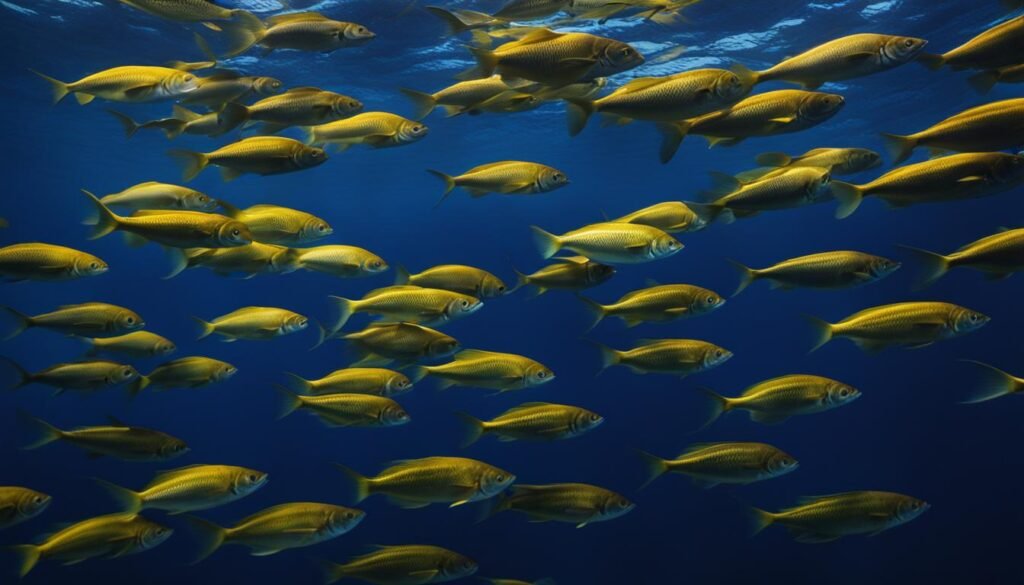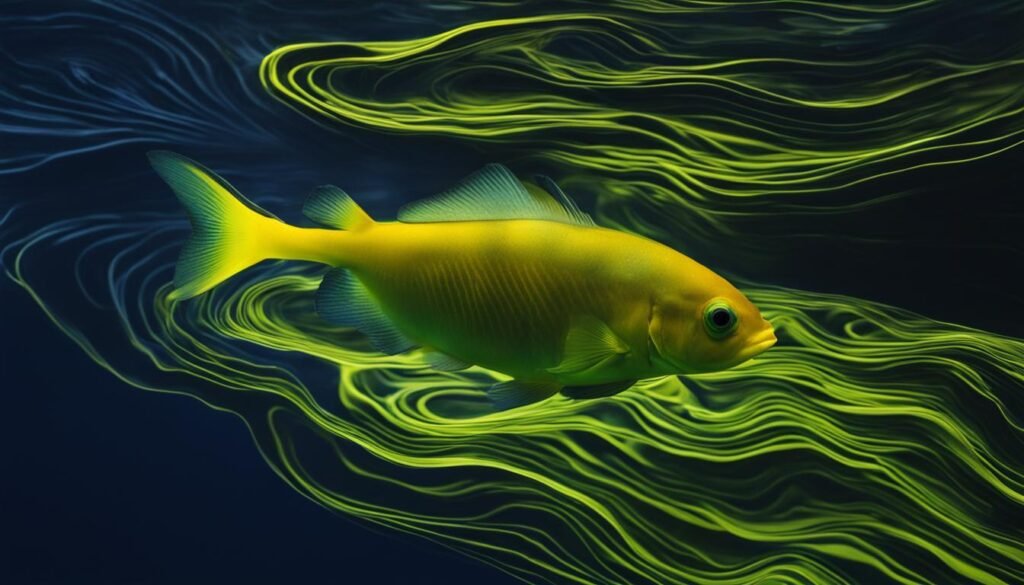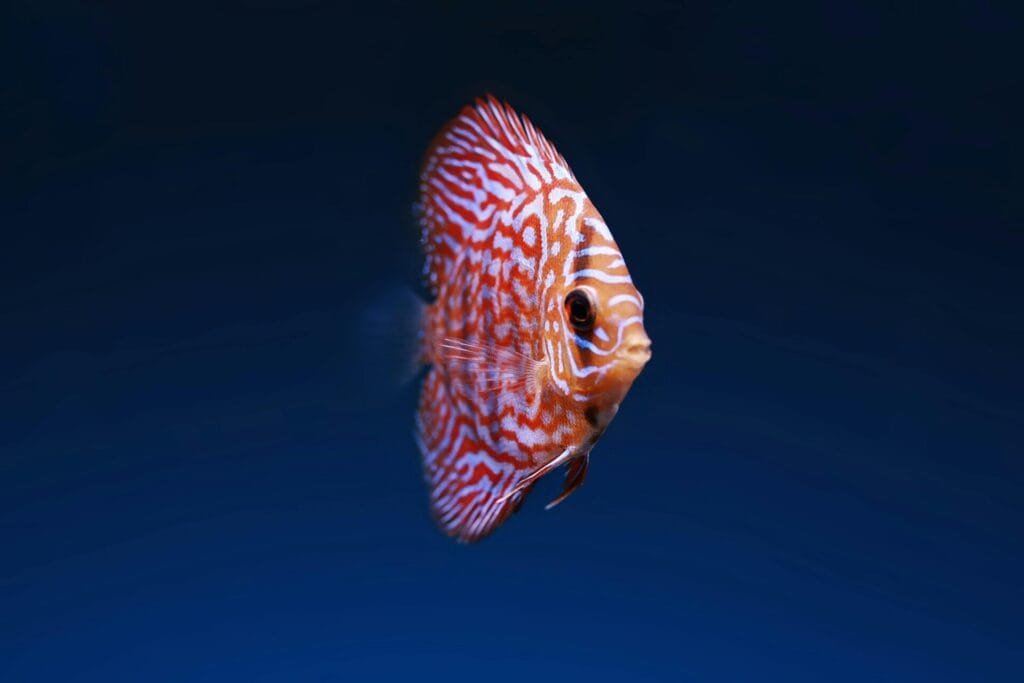Have you ever wondered if fish hibernate during the winter months? The idea of fish snuggled up in their underwater beds, enjoying a long peaceful sleep, is indeed intriguing. But is it true? Let’s dive into the fascinating world of fish hibernation and find out the truth.
Contrary to popular belief, fish do not actually hibernate like some mammals do. While they may exhibit behaviors that resemble hibernation, such as decreased activity and sluggish movements, it is important to understand the nuances of fish behavior during the colder seasons.
During winter, some species of fish may enter a state of torpor or a dormant period. This is an adaptive behavior that helps them conserve energy and survive in colder conditions with limited food resources. However, it is not the same as true hibernation.
So, when do fish enter this state of torpor? It varies depending on the species and environmental factors such as water temperature. Some fish may become less active and show reduced feeding behaviors when water temperatures drop below their preferred range. However, this is a temporary response to the changing conditions rather than a prolonged inactivity equivalent to hibernation.
It’s worth noting that not all fish species exhibit these behaviors. Some fish, especially those living in colder environments, have adapted to the low temperatures and continue their normal activities throughout the year.
In the upcoming sections, we will explore in detail the behaviors and patterns of fish during the colder months, debunk the myth of fish hibernation, and shed light on why fish do not hibernate. By understanding these fascinating adaptations, we can better appreciate the resilience and versatility of our aquatic friends.
The Behavior of Mystery Snails in Aquariums
Mystery snails are a beloved species commonly found in freshwater aquariums. While they don’t hibernate in aquariums, understanding their behavior is essential for their well-being. Unlike other animals, mystery snails do not require hibernation as long as their tank conditions are favorable.
When it comes to mystery snail behavior, periods of inactivity or dormancy can occur. These periods can sometimes be mistaken for hibernation, but there are distinct differences. Inactivity in mystery snails can be triggered by various factors, such as sleeping, sickness, or unsuitable water conditions.
Distinguishing Mystery Snail Inactivity from Hibernation
During periods of inactivity, mystery snails may exhibit reduced movement and slower responses. They might appear motionless for extended periods. However, it’s important to note that this is not genuine hibernation. Mystery snails can still move, albeit at a slower pace, and are capable of responding to external stimuli even during their inactive state.
To further distinguish between inactivity and hibernation, it’s essential to observe their feeding patterns. Mystery snails in a state of inactivity will still display an interest in food but might eat less frequently. In contrast, hibernating animals typically have little to no interest in eating during their dormant period.
Creating an optimal environment for mystery snails is crucial for their overall health. Maintaining a consistent temperature in the tank and providing adequate food will help prevent them from entering a dormant state. Ensure a temperature range of 70-78°F (21-25°C) and a well-balanced diet consisting of algae, decaying leaves, and commercial snail food.
By providing suitable conditions and monitoring their behavior closely, you can ensure the happiness and well-being of your mystery snails in the aquarium.
| Mystery Snail Behavior Indicators | Possible Causes |
|---|---|
| Sleeping for extended periods | Normal sleep cycle, relaxation |
| Inactivity and reduced movement | Inappropriate water conditions, sickness, stress |
| Decreased feeding frequency | Reduced appetite, limited food availability |
Debunking the Myth of Fish Hibernation
The concept of fish hibernation has long been a topic of fascination and misunderstanding. While it is true that fish exhibit different behaviors during the winter months, they do not actually hibernate. Instead, they enter a state of torpor, which is a dormant state characterized by reduced metabolic activity.
During torpor, fish may display decreased activity, slower movements, and reduced feeding. However, it is important to note that this state is distinct from the prolonged periods of inactivity and energy conservation associated with true hibernation. Fish have unique physiological responses to low water temperatures that differ from hibernation in mammals.
While hibernation involves a deep sleep and a significant drop in metabolic rate, fish are capable of adjusting and responding to low temperatures without entering a prolonged state of inactivity. They may experience reduced activity levels and slow down their metabolic processes, but they remain capable of movement and response to stimuli.
It is important to dispel the myth of fish hibernation and recognize the adaptive responses of freshwater fish to winter conditions. By understanding the concept of torpor and the physiological adjustments fish make, we can gain a deeper appreciation for their ability to survive and thrive in colder environments.
| Myth | Reality |
|---|---|
| Freshwater fish hibernate during winter. | Freshwater fish enter a state of torpor characterized by reduced metabolic activity. |
| Hibernation involves prolonged periods of inactivity and energy conservation. | Fish adjust their metabolic activity and behavior to survive in lower temperatures. |
| Hibernation is a common physiological response in mammals. | Fish have unique adaptations and responses to low water temperatures. |
Why Fish Don’t Hibernate
Fish have an interesting response to the colder months, but it’s important to understand that they don’t hibernate like mammals do. This is due to the biological constraints and unique characteristics of fish.
Unlike mammals, fish lack the necessary adaptations to enter a deep sleep or extended period of inactivity. Their metabolism is closely tied to water temperature, with lower temperatures slowing down their physiological processes. Fish rely on a constant intake of oxygen, which requires them to remain active and maintain normal metabolic functions.
While fish may exhibit signs of lethargy and reduced activity during colder months, they are still able to move and respond to stimuli. They do not experience the prolonged periods of inactivity and energy conservation that are typical of hibernation in mammals.
Biological Constraints of Fish Hibernation
Several factors contribute to the inability of fish to hibernate:
- Fish rely on a constant intake of oxygen, which requires them to remain active.
- Their metabolism is closely tied to water temperature.
- Lower temperatures slow down their physiological processes.
These biological constraints make it inaccurate to characterize fish behavior in winter as hibernation. Rather, fish exhibit adaptive responses to temperature changes that enable them to survive in colder conditions.
Understanding the differences between fish behavior and mammalian hibernation can help dispel the myth of fish hibernation and enhance our appreciation for the unique adaptations of these aquatic creatures.
Understanding Fish Behaviors in Winter
During the winter season, fish undergo various changes in their behavior and physiology to adapt to the colder conditions. While they do not hibernate like some mammals, fish make certain adjustments to survive in lower temperatures. One notable behavior is the state of torpor, which is a temporary reduction in metabolic activity.
When fish enter a state of torpor, their metabolic rate decreases, allowing them to conserve energy and endure periods with limited food resources. This adjustment helps fish navigate through the challenging winter months. As a result, fish may exhibit reduced feeding behaviors and slower movements.
In order to support fish during the winter, it is essential to provide appropriate environmental conditions. This includes maintaining stable water temperatures and ensuring sufficient oxygen levels. Additionally, adjusting feeding routines to align with the fish’s decreased metabolic activity is crucial.
Understanding fish behaviors during winter is important for fishkeepers as it enables them to provide the necessary care and support for their aquatic pets. By creating a suitable environment and making appropriate modifications to feeding patterns, fish can thrive even in the coldest months of the year.
The Benefits of Adjusting Fish Feeding Patterns During Winter
Adapting fish feeding patterns during winter is essential for their overall well-being. Here are some benefits of making these adjustments:
- Energy conservation: Decreased feeding during winter helps fish conserve energy, as their metabolic rate is lower.
- Reduced waste buildup: With less food intake, there is a reduced risk of waste accumulating in the aquarium, contributing to better water quality.
- Prevention of overfeeding: Adjusting feeding routines prevents overfeeding, which can lead to various health issues for fish.
- Stimulated foraging behaviors: Modifying feeding habits can encourage natural foraging behaviors, providing mental stimulation for fish.
By adhering to these feeding pattern adjustments and understanding the behaviors of fish during winter, fishkeepers can ensure the well-being and longevity of their aquatic companions.
| Behavior | Explanation |
|---|---|
| Torpor | A temporary reduction in metabolic activity that helps fish conserve energy during winter. |
| Reduced Feeding | Fish exhibit decreased feeding behaviors due to their lower metabolic rate and limited food resources. |
| Slower Movements | Fish tend to move more slowly during winter as they conserve energy and adjust to the colder conditions. |
Conclusion
In conclusion, freshwater fish do not hibernate but may exhibit behaviors such as torpor during the winter months. While many people believe fish hibernate, it is important to understand the difference between true hibernation and the adaptive responses of fish to lower temperatures.
Fish are remarkably adaptable creatures and have developed various strategies to survive in colder conditions. Instead of entering a state of prolonged inactivity like hibernation, fish adjust their metabolic activity and behavior to conserve energy and ensure their survival.
By debunking the myth of fish hibernation, we gain a better understanding of the fascinating adaptations that fish undergo during the winter season. Fish torpor is a temporary reduction in metabolic activity that allows them to conserve energy, while still remaining responsive to their environment. This adaptation enables fish to survive the unfavorable conditions of winter.
In summary, fish torpor should not be confused with hibernation. Fish torpor is a fascinating behavior that showcases the resilience and adaptability of freshwater fish. Understanding fish winter behaviors and debunking the hibernation myth helps us appreciate the remarkable ways in which aquatic creatures navigate and thrive in challenging environments.


